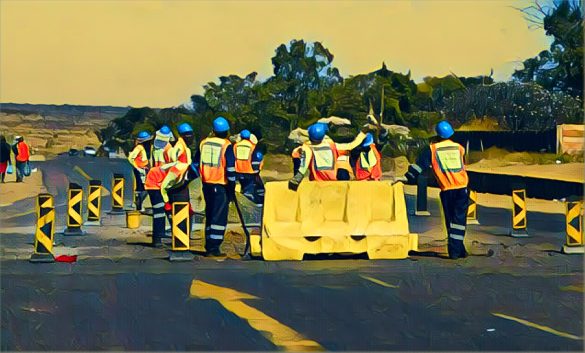A road improvement project in Uzumba Maramba Pfungwe (UMP) district has become a symbol of delayed governmental promises and frustrated community hopes. Launched in 2018, the plan was to pave a significant portion of the 50km Murewa-Madichecha Road, aiming to enhance local transport conditions. However, as of now, only 600 meters have been completed, despite the government’s declaration of intent to tar 1.2 km of the road. This sluggish progress comes amid allegations of misused road construction funds.
The road project, managed by the Central Mechanical and Equipment Department (CMED), was initially supposed to improve the daily commute for residents by providing a reliable and safe roadway. CMED has acknowledged their contract for the rehabilitation of the road under the Emergency Road Rehabilitation Programme 2, which outlines extensive work including earthworks and asphalt surfacing. Despite this, the financial terms of the contract have remained undisclosed, and the government has not yet compensated CMED for the completed 600 meters.
Local frustration is palpable as residents recount ongoing transport difficulties exacerbated by the road’s poor condition. The majority of the route, from Maguranga to Dewe, remains unpaved, marred by potholes and damaged infrastructure, barely supporting the needs of the community. Residents have expressed their disillusionment with political leaders, accusing them of using the promise of road improvements as a tactic to garner votes during election periods without delivering actual results.
The dissatisfaction extends beyond mere inconvenience. The road’s state has forced villagers to rely on motorbikes for transport, posing significant risks, particularly to pregnant women who, in emergencies, must travel long distances on these unsafe vehicles to reach healthcare facilities. The community’s reliance on such precarious modes of transport underscores the urgency of the road’s need for proper rehabilitation.
Local authorities and politicians have distanced themselves from the delays, attributing the slow progress to broader governmental processes. Meanwhile, residents continue to wait for the fulfillment of promises made over a decade ago, each delay adding to a legacy of unmet expectations and mistrust in public infrastructure projects.


